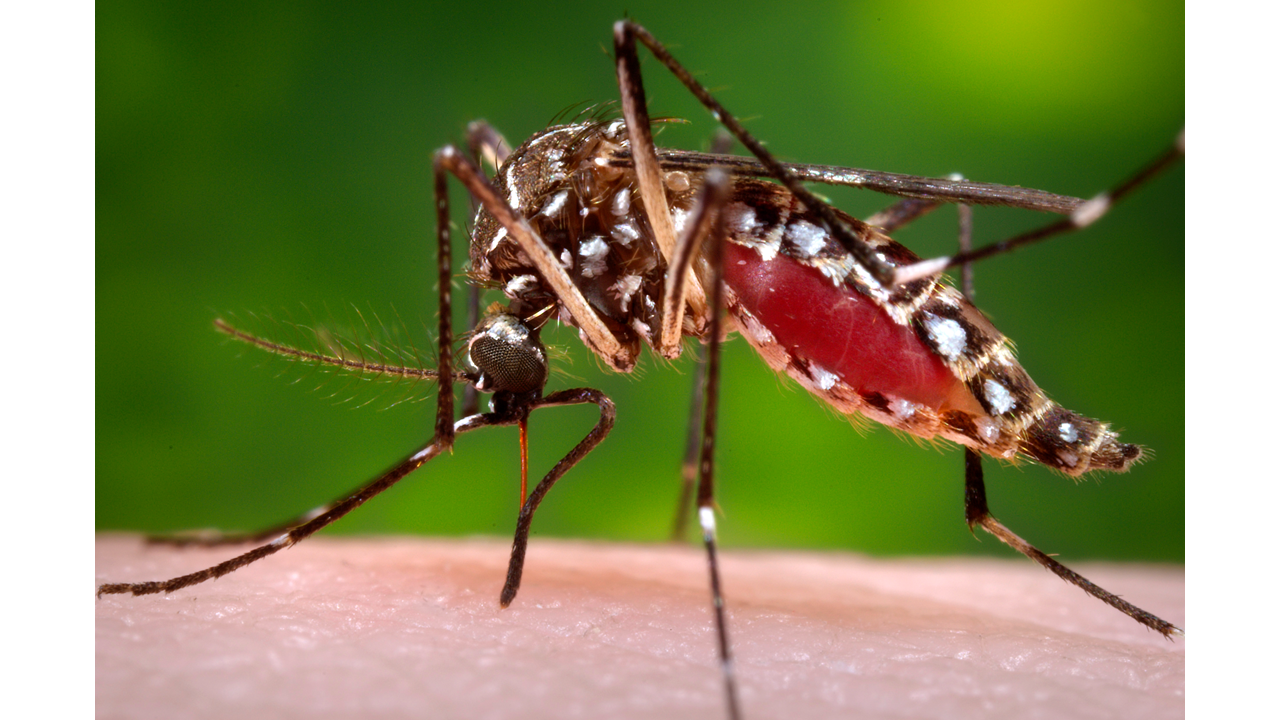Mosquitoes transmit many dangerous diseases, including Zika and West Nile. / James Gathany, Centers for Disease Control and Prevention
CULLMAN COUNTY – It’s that time of year again: lake days, long summer nights and anywhere from one to 100 mosquito bites depending on one’s luck. It’s summertime in Alabama, and with a mild winter, mosquito season is back with a vengeance.
With what the National Oceanic and Atmospheric Administration says was the second warmest winter on record in the U.S. (http://qrne.ws/noaa), temperatures across the south were too warm to manage some populations of insects effectively. This has prompted local governments to begin mosquito spraying sooner and longer than usual. With the public’s health in mind, many municipalities across the county are spraying and warning the public about potential breeding grounds for mosquitoes.
The City of Cullman has already begun its annual spraying, and will continue to spray until the first frost of the winter months. The goal is to cover the entire town, which the City says can take weeks.
In Cullman County, there is no countywide program, rather each municipality can choose whether or not to pay for the service. Several of the smaller municipalities, such as Baileyton, are not financially able to spray; however, the larger municipalities of Hanceville and Good Hope will continue their annual programs.
Good Hope began the week before last, but Hanceville has yet to begin due to the amount of rain the area has received in recent weeks.
Said Hanceville Mayor Kenneth Nail, “The mosquito people say it’s not good to spray if it’s raining, humid or windy.” Once the weather is more cooperative, Hanceville will spray on a weekly basis. Nail asks residents to go inside for a few minutes after a spray is done in their area, and to not walk or ride bicycles in the fog. “It’s still a poison. I personally don’t think it’s a good idea,” he said.
The Centers for Disease Control and Prevention (CDC) recommends the following for controlling mosquitoes outside and inside your home (http://qrne.ws/mosquitoes):
Control mosquitoes outside your home
Remove standing water where mosquitoes could lay eggs
- Once a week, empty and scrub, turn over, cover, or throw out any items that hold water like tires, buckets, planters, toys, pools, birdbaths, flowerpot saucers, or trash containers. Mosquitoes lay eggs near water.
- Tightly cover water storage containers (buckets, cisterns, rain barrels) so that mosquitoes cannot get inside to lay eggs.
- For containers without lids, use wire mesh with holes smaller than an adult mosquito.
- Use larvicides to treat large containers of water that will not be used for drinking and cannot be covered or dumped out.
- If you have a septic tank, repair cracks or gaps. Cover open vent or plumbing pipes. Use wire mesh with holes smaller than an adult mosquito.
Kill mosquitoes outside your home
- Use an outdoor insect spray made to kill mosquitoes in areas where they rest.
- Mosquitoes rest in dark, humid areas like under patio furniture, or under the carport or garage. When using insecticides, always follow label instructions.
Control mosquitoes inside your home
Keep mosquitoes out
- Install or repair and use window and door screens. Do not leave doors propped open.
- Use air conditioning when possible.
Remove standing water where mosquitoes could lay eggs
- Once a week, empty and scrub, turn over, cover, or throw out any items that hold water like vases and flowerpot saucers. Mosquitoes lay eggs near water.
Kill mosquitoes inside your home
- Kill mosquitoes inside your home. Use an indoor insect fogger* or indoor insect spray* to kill mosquitoes and treat areas where they rest. These products work immediately, and may need to be reapplied. When using insecticides, always follow label directions. Only using insecticide will not keep your home free of mosquitoes.
- Mosquitoes rest in dark, humid places like under the sink, in closets, under furniture, or in the laundry room.
Copyright 2017 Humble Roots, LLC. All Rights Reserved.



















